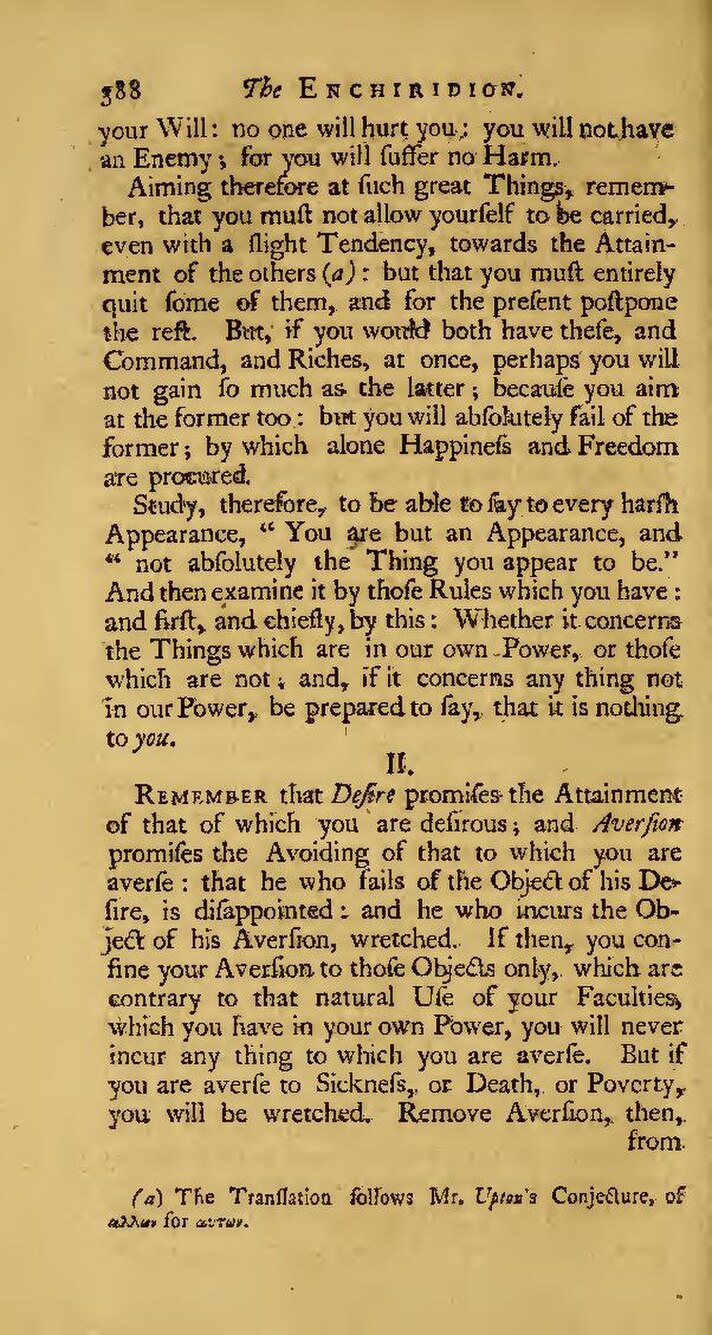your Will: no one will hurt you; you will not have an Enemy; for you will suffer no Harm.
Aiming therefore at such great Things, remember, that you must not allow yourself to be carried, even with a slight Tendency, towards the Attainment of the others[1]: but that you must entirely quit some of them, and for the present postpone the rest. But, if you would both have these, and Command, and Riches, at once, perhaps you will not gain so much as the latter; because you aim at the former too: but you will absolutely fail of the former; by which alone Happiness and Freedom are procured.
Study, therefore, to be able to say to every harsh Appearance, "You are but an Appearance, and not absolutely the Thing you appear to be." And then examine it by those Rules which you have: and first, and chiefly, by this: Whether it concerns the Things which are in our own Power, or those which are not, and, if it concerns any thing not in our Power, be prepared to say, that it is nothing to you.
II.
Remember that Desire promises the Attainment of that of which you are desirous; and Aversion promises the Avoiding of that to which you are averse: that he who fails of the Object of his Desire, is disappointed: and he who incurs the Object of his Aversion, wretched. If then, you confine your Aversion to those Objects only, which are contrary to that natural Use of your Faculties, which you have in your own Power, you will never incur any thing to which you are averse. But if you are averse to Sickness, or Death, or Poverty, you will be wretched. Remove Aversion, then,
- ↑ The Translation follows Mr. Upton's Conjecture, of αλλων for αυτων.
